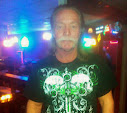I came across this today, apparently an excerpt from Karen Armstrong's upcoming book - The Case for God. It was such a beautiful piece of writing, and sentiment, that I thought I'd reproduce it here: Enjoy!
Namaste'
From almost the very beginning, men and women have repeatedly engaged in strenuous and committed religious activity. They evolved mythologies, rituals and ethical disciplines that brought them intimations of holiness that seemed in some indescribable way to enhance and fulfil their humanity. They were not religious simply because their myths and doctrines were scientifically or historically sound, because they sought information about the cosmos, or merely because they wanted a better life in the the hereafter. They were not bludgeoned into faith by power-hungry priests or kings; indeed religion often helped people to oppose tyranny and oppression of this kind. The point of religion was to live intensely and richly here and now. Religious people are ambitious. They want lives overflowing with significance. They have always desired to integrate with their daily lives the moments of rapture and insight that came to them in dreams, in their contemplation of nature and in their intercourse with one another and with the animal world. Instead of being crushed and embittered by the sorrow of life, they sought to retain their peace and serenity in the midst of their pain.
They yearned for the courage to overcome their terror of mortality; instead of being grasping and mean-spirited, they aspired to live generously, large-heartedly and justly and to inhabit every single part of their humanity. Instead of being a mere workaday cup, they wanted, as Confucius suggested, to transform themselves in to a beautiful ritual vessel brimful of the sanctity that they were learning to see in life. Thy tried to honour the ineffable mystery then sensed in each human being and create societies that honoured the stranger, the alien, the poor and the oppressed. Of course they often failed. but overall they found that the disciplines of religion helped them to do all this. Those who applied themselves most assiduously showed that it was possible for mortal men and women to live on a higher, divine or godlike plane and thus wake up to their true selves.
One day a brahmin priest came across the Buddha sitting in contemplation under a tree and was astonished by his serenity, stillness and self-discipline. The impression of immense strength channelled creatively into an extraordinary peace reminded him of a great tusker elephant. "Are you a god, sir?" the priest asked. "Are you an angel...or a spirit?" No, the Buddha replied. He explained that he had simply revealed a new potential in human nature. It was possible to live in this world of conflict and pain at peace and in harmony with one's fellow creatures. There was no point in merely believing it; you would only discover its truth if you practices his method, systematically cutting off egotism at the root. You would then live at the peak of your capacity, activate parts of the psyche that normally lie dormant, and become fully enlightened human beings. "Remember me, " the Buddha told the curious priest, "as one who is awake."
This story of the first person that the Buddha met after his Enlightenment has always been a powerful one for me. There are so many strands here - he did not recognize him for what he was, he passed on by after the Buddha told him what he was, not knowing how to profit from the encounter ..... and on and on ....
The notion that the Buddha is one who is awake - fully and utterly awake to their experience - has also remained powerful and poignant. Not about being someone different, becoming someone different, becoming anything other than what we are, right now. But opening fully, and utterly to what is, right now, and seeing it for what it is, not lost in it, not entranced and seduced by it, but seeing it for what it is, in the fullest possible context, in detail, and it nature. Fully awake.
Karen summarizes so well the best of this inner urge that many of us feel, that seems to have become a little lost in the public eye, transfixed as it is with the words and deeds of fundamentalists.
About Karen Armstrong
Karen Armstrong is one of the most provocative, original thinkers on the role of religion in the modern world. Armstrong is a former Roman Catholic nun who left a British convent to pursue a degree in modern literature at Oxford. She has written more than 20 books around the ideas of what Islam, Judaism and Christianity have in common, and around their effect on world events, including the magisterial A History of God and Holy War: The Crusades and Their Impact on Today’s World. Her latest book is The Case for God. Her meditations on personal faith and religion (she calls herself a freelance monotheist) spark discussion — especially her take on fundamentalism, which she sees in a historical context, as an outgrowth of modern culture.
In February 2008, Karen Armstrong won the TED Prize and wished for help in creating, launching and propagating the Charter for Compassion.





No comments:
Post a Comment